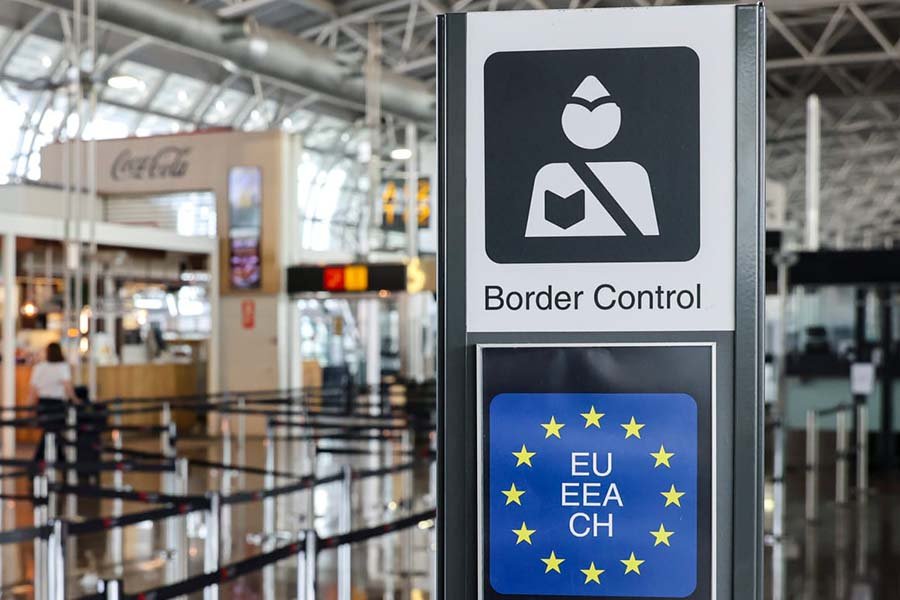read also
Visas for Russians: EU Prepares New Restrictions

Photo: Politico
The European Union is preparing to tighten visa rules for citizens of Russia and other “hostile states,” Politico reports. The new recommendations, with stricter criteria, are expected to be published in December 2025. However, the final decision on visas will remain within the competence of national governments.
Diplomats from Poland and the Baltic states call Brussels’ upcoming guidelines overdue. These countries have long lobbied for unified restrictions and have already effectively stopped issuing tourist visas to Russians, making exceptions only in special cases. Meanwhile, Western and Southern European states, including Hungary, France, Spain, and Italy, continue to issue visas more liberally, deepening the rift within the EU.
The European Commission emphasizes that the new rules will be advisory, not mandatory. The focus is on security concerns linked to admitting citizens of countries hostile to the EU. Officials point to inconsistent national practices and the rise in visa applications from Russians, who increasingly visit Europe for leisure. According to EU data, over 500,000 Schengen visas were issued to Russian citizens in 2024 — well above 2023 levels, but far below 2019, when permits exceeded 4 million.
Italy became the top destination for Russians: 161,401 applications, 152,254 approvals, with a high 94.3% success rate. France registered 134,885 applications and issued 123,890 visas (71.1%). Spain issued 111,187 permits but also recorded the highest number of refusals — 9,916. In Greece, 59,703 out of 69,690 applications were approved (85.7%). Hungary granted 23,382 visas out of 25,651 requests (91.2%). Norway was the least popular, with only 52 applicants.
The previous restriction canceled the EU–Russia visa facilitation agreement in September 2022, making the process more expensive and complex. The absence of a unified approach has led to diverging national practices. The new guidelines will be the first attempt at harmonization, though without binding force. Latvia’s Foreign Minister Baiba Braže stressed the need for a “unified and consistent approach” across the bloc.
Russian opposition figures express concern over the idea of banning tourist visas altogether, urging the EU to distinguish between the regime and society rather than impose collective punishment.
Restrictions for Russian diplomats are also being discussed. Czech Foreign Minister Jan Lipavský proposed banning diplomats from traveling freely across the Schengen zone outside their country of accreditation, calling this “an unjustified privilege for the Russian regime used for subversive activity.”
According to ANSA, visa restrictions could be introduced as part of the EU’s 19th sanctions package against Russia, which may also include measures against states and companies continuing to trade with Moscow, particularly those buying Russian oil. ANSA reports the package could be adopted by the end of September. Politico clarifies that the Commission’s visa recommendations are not formally part of the sanctions package, though discussions overlap. The document is set for publication at the end of December 2025.
Russian media outlet Izvestia quoted two Members of the European Parliament. Tomáš Zdechovský believes a full ban on tourist visas is unlikely, predicting instead longer processing times, higher fees, or strict quotas, especially in countries most concerned about security risks, such as Poland, Finland, and the Baltics.
Fernand Kartheiser does not rule out a complete ban, though he calls it unfair and “foolish.” He added: “I hope the matter does not reach the European Parliament, since the majority there is anti-Russian.”
Russian Foreign Ministry spokeswoman Maria Zakharova warned that Moscow would retaliate against any new restrictions. Meanwhile, Russians continue to travel actively to Europe despite logistical issues and blocked bank cards. However, processing times are again increasing, and securing an appointment slot has become increasingly difficult.








